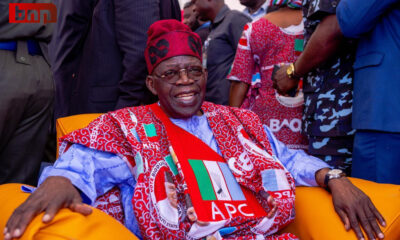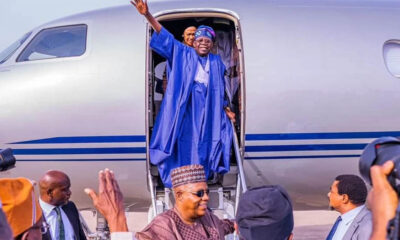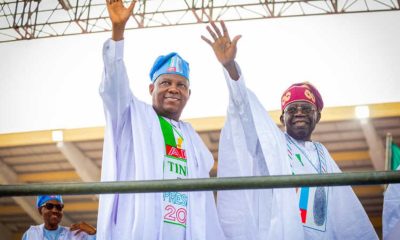News
Nigeria got $1.25bn W’Bank, AfDB loans for electricity under Tinubu – Report

Nigeria got $1.25bn W’Bank, AfDB loans for electricity under Tinubu – Report
Nigeria has secured at least $1.25 billion in loans from the World Bank and the African Development Bank (AfDB) to boost electricity supply under the administration of President Bola Tinubu.
On December 14, 2023, the World Bank approved the $750 million Distributed Access through Renewable Energy Scale-up (DARES) project in Nigeria.
More recently, on July 31, 2024, the African Development Bank Group (AfDB) approved a loan of $500 million to the Federal Republic of Nigeria to help transform the country’s electricity infrastructure and improving access to cleaner energy sources.
The loan from the World Bank is structured into three distinct segments, cumulatively forming the $750 million total financial package. This package is segmented into credits of $350 million, $250 million, and $150 million, each earmarked for different facets of the project and subject to currency conversions as necessary.
The primary implementers of this project are the Rural Electrification Agency (REA) and the Lagos State Electricity Board (LSEB), with significant support from the Federal Ministry of Power, the Nigerian Electricity Management Services Agency (NEMSA), the Federal Ministry of Environment, the Nigerian Electrification Regulatory Commission (NERC), and the Federal Ministry of Finance.
According to the press release announcing the loan approval, $750 million credit from the International Development Association (IDA), is being used to leverage more than $1 billion from private investors and additional funding from different partners.
READ ALSO:
- Tinubu now ready to address the nation over hunger protest
- Omokri to Tinubu: Slash your salary, cabinet members, cost of governance
- Fear grips herders in Adamawa as disease kills 1,000 cows
Contributions include $100 million from the Global Energy Alliance for People and Planet and $200 million from the Japan International Cooperation Agency (JICA).
Other collaborators in this initiative include the United States Agency for International Development (USAID), the German Development Agency (GIZ), Sustainable Energy for All (SEforAll), and the African Development Bank (AfDB).
This ambitious DARES project aims to provide over 17.5 million Nigerians with better access to electricity through distributed renewable energy solutions. The goal is to tackle the electricity access deficit.
The DARES program will assist the Federal Government of Nigeria in coordinating and finance off-grid electrification efforts. It will also aid states in developing capacity and policies to promote rooftop solar energy.
Newstrends earlier reported that the federal government plans to provide subsidy to developers and operators of solar mini-grids in unserved and underserved areas in the country. The subsidy will be provided through a World Bank approved loan of $750 million under the Distributed Access through Renewable Energy Scale-up (DARES) project.
According to a statement from the AfDB, this funding will finance the first phase of the Economic Governance and Energy Transition Support Program (EGET-SP), aimed at transforming the country’s electricity infrastructure and improving access to cleaner energy sources.
The statement also noted that the loan will help close the financing gap in the Federal Budget for the 2024/25 fiscal year, specifically supporting the implementation of Nigeria’s new Electricity Act and the Nigeria Energy Transition Plan. These initiatives are designed to decentralize the electricity supply industry and attract investments from subnational governments and the private sector.
Nigeria got $1.25bn W’Bank, AfDB loans for electricity under Tinubu – Report
News
Libya nabs three Nigerians over drug trafficking
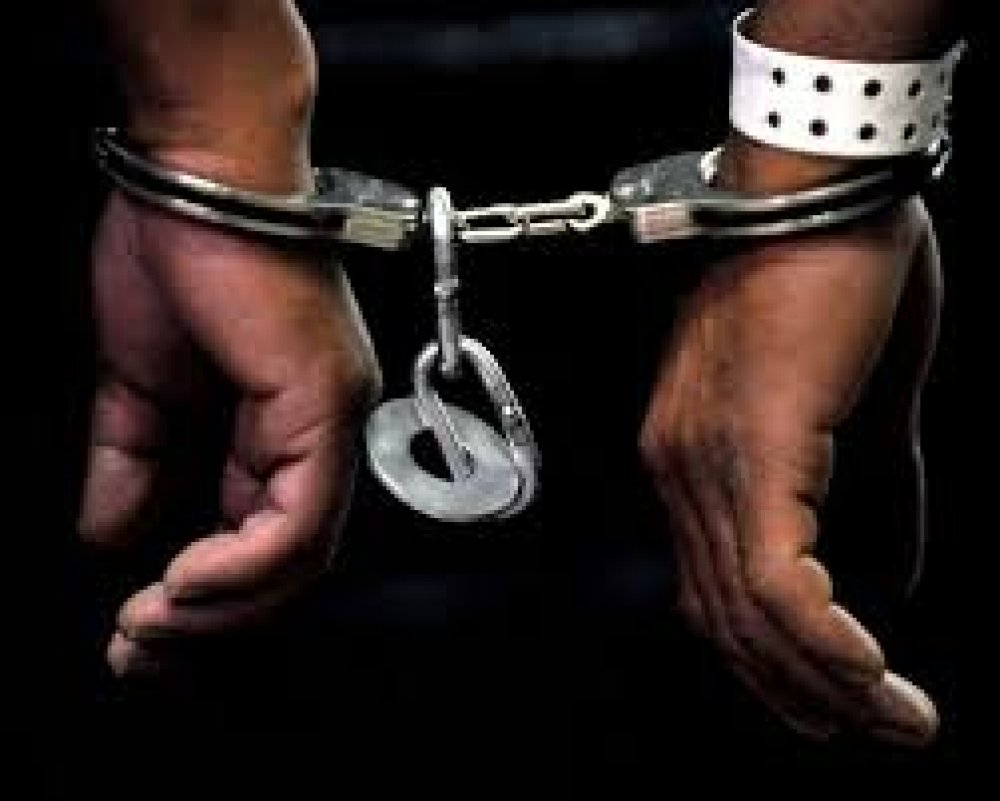
Libya nabs three Nigerians over drug trafficking
The Samnu Police Department in southern Libya detained three Nigerians for drug trafficking.
According to a statement issued by Migrant Rescue Watch on X (previously Twitter) on Sunday, the suspects were apprehended carrying a quantity of hashish that officials believe was meant for sale.
The arrests were made during a targeted operation in the town of Samnu, Murzuq region, which is known for smuggling and human trafficking due to its proximity to Libya’s southern borders.
READ ALSO:
- EFCC arrests 36 suspected internet fraudsters
- Obama reacts as Trump freezes $2.3b Harvard University funding
- Peter of P-square testifies against brother in fraud case
This operation is part of a larger security effort to combat drug-related crimes and cross-border trafficking of migrants.
The suspects’ identities have not yet been made public. Authorities acknowledged that the case had been turned over to the public prosecutor for further investigation and judicial action.
The statement said. “Samnu Police Dept. arrested 3 #migrants of Nigerian nationality on charges of drug trafficking. The trio were found in possession of a quantity of hashish earmarked for sale. The case was referred to public prosecution.”
Libya nabs three Nigerians over drug trafficking
News
NIS expands contactless passport renewal to United States, others

NIS expands contactless passport renewal to United States, others
The Nigeria Immigration Service (NIS) has announced the expansion of its Contactless Biometric Passport Application System to several countries in the Americas.
In a recent statement by ACI AS Akinlabi, Service Public Relations Officer at NIS Headquarters in Abuja, confirmed that the service under Comptroller General Kemi Nandap is rolling out the next stage of implementation across Brazil, the United States, Mexico, and Jamaica this month.
The contactless system, which enables Nigerians living abroad to renew their travel document without physically visiting passport offices for biometric enrollment, went live in the United States on April 11. Mexico, Brazil and Jamaica are scheduled to gain access on April 14.
READ ALSO:
- I don’t have a second wife or family – Super Eagles striker Brown Ideye
- OAU student electrocuted while retrieving football from nearby compound
- Bomb blast: Senator Ndume visits victims at hospital, offers financial support
“This expansion represents our commitment to innovative and efficient service delivery to Nigerians anywhere in the world,” said ACI AS Akinlabi, Service Public Relations Officer at NIS Headquarters in Abuja.
The application system is currently available on the Google Play Store as “NIS Mobile” and allows passport renewal without in-person biometric enrollment. An iOS version for Apple devices is under development and will be released soon, alongside an enhanced version of the Android app to improve user experience and accessibility.
The NIS further confirmed that the Contactless Passport App is now operational in Canada, the USA, Mexico, Jamaica, Brazil, Europe, and Asia. Australia and Nigeria itself remain pending, with implementation dates to be announced in the future.
NIS expands contactless passport renewal to United States, others
News
Tariff: NACCIMA warns against economic instability, job losses
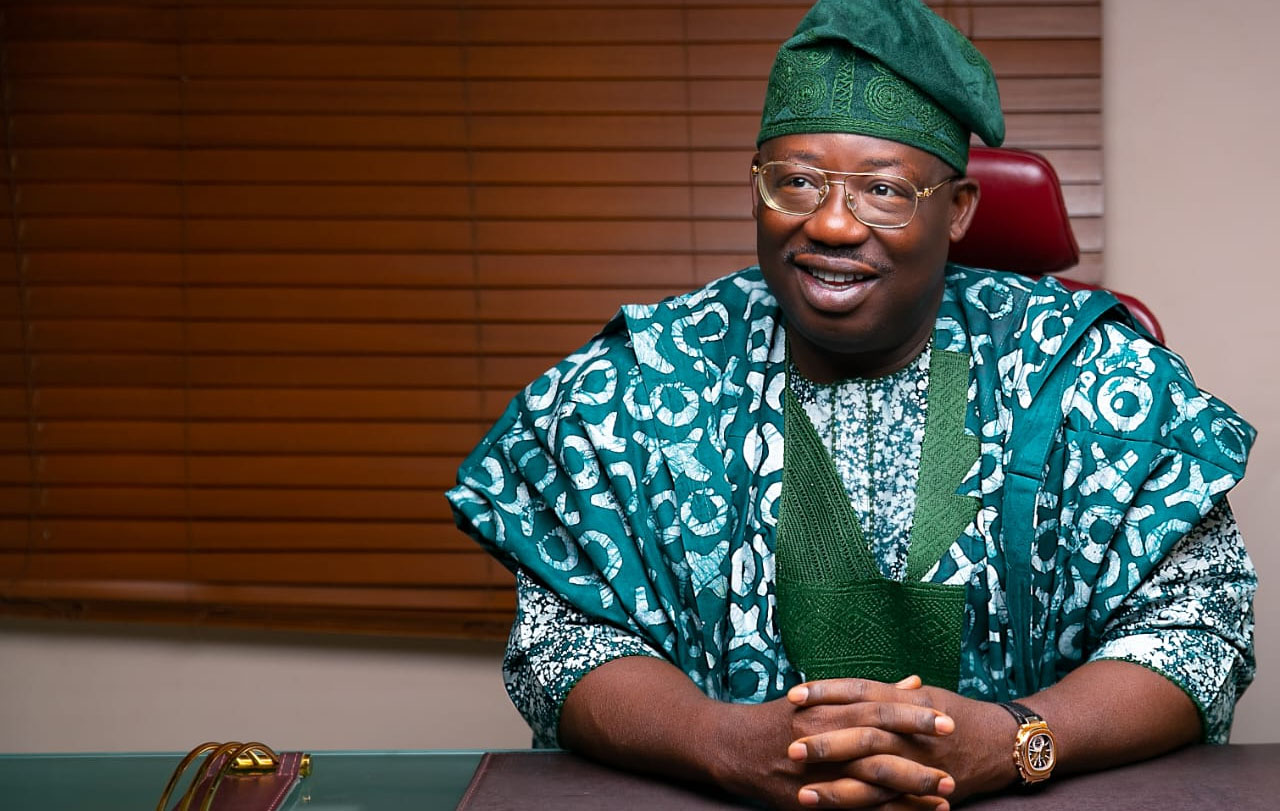
Tariff: NACCIMA warns against economic instability, job losses
The Nigerian Association of Chambers of Commerce, Industry, Mines, and Agriculture (NACCIMA) has expressed fear that unless the Federal Government takes deliberate steps to increase Nigeria’s non-export earnings, the current global tariff war may lead to job losses, low foreign exchange inflow, and economic instability.
This was the position of the President of NACCIMA, Dele Oye, as the chairman at the Vanguard Economic Discourse 2025 with the theme, “Nigeria’s Economic Outlook 2025: Hardship and Pathways to Sustainable Recovery”, held last week in Lagos.
Among other things, Oye who is also the Chairman of the Organised Private Sector of Nigeria (OPSN), emphasized the need for a viable and affordable homegrown democracy.
His words: “In this pivotal moment, we must recognize and confront the significant challenges before us—challenges that have been magnified by the advent of America’s “America First” policy.
READ ALSO:
- Portable arrested over alleged defamation against Osupa
- Varsity strike looms as NASU alleges secret ASUU-FG deal on allowance
- Despite trade spat with US, China exports rises 12.4%
“This paradigm shift in global trade, driven by protectionism and tariffs, presents a unique and formidable array of obstacles for developing nations such as ours.
“The world we once knew, one characterized by cooperative, rules-based trading systems under the World Trade Organization, has given way to an environment fraught with uncertainty. This transformation not only disrupts global markets and supply chains but poses an acute threat to our competitive standing in international trade.
“The recent implementation of a 14% tariff on Nigerian exports to the United States directly jeopardizes what has historically been a critical market for our key goods, including crude oil, liquefied natural gas, and agricultural products. “The ripple effects of reduced demand could precipitate job losses, economic instability, and a decline in vital foreign exchange inflows, particularly for our non-oil sectors”.
“Indeed, the ramifications of current U.S. policies go beyond tariffs. We are witnessing a significant decrease in funding for initiatives that empower Africa’s burgeoning start-ups. The $51 million cut from the United States Development Fund, which affects countries like Nigeria and Kenya, exemplifies the broader challenges we face. The grants previously allotted to our SMEs are critical for nurturing innovation and entrepreneurship within our local economies”.
In the face of these challenges, Oye said Nigeria must act decisively and strategically to reshape its economic destiny where adversity can give rise to opportunity.
Tariff: NACCIMA warns against economic instability, job losses
-
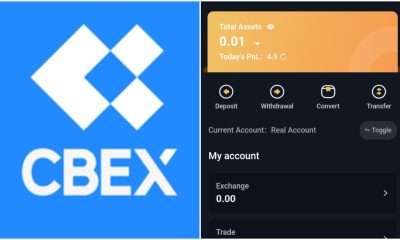
 Business2 days ago
Business2 days ago5 facts about trending digital trading platform, CBEX
-
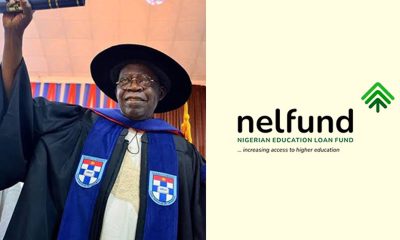
 Education3 days ago
Education3 days agoNELFUND: How schools, banks are ripping off students
-

 Insurance1 day ago
Insurance1 day agoLasaco Assurance Plc attains ISO/IEC 27001:2022 Certification for Information Security Management
-
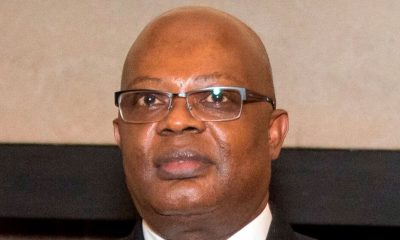
 metro3 days ago
metro3 days agoRivers administrator demands N300m refund from NBA after relocating conference
-
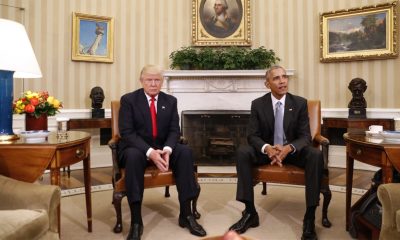
 International2 days ago
International2 days agoObama reacts as Trump freezes $2.3b Harvard University funding
-

 Politics3 days ago
Politics3 days ago2027: PDP governors reject alliance of opposition parties
-

 metro2 days ago
metro2 days agoBREAKING: Court strikes out defection suit against 27 pro-Wike Rivers lawmakers
-
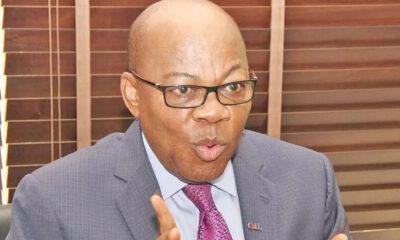
 metro2 days ago
metro2 days agoNatasha’s allegation against Akpabio has contradictions – Agbakoba

